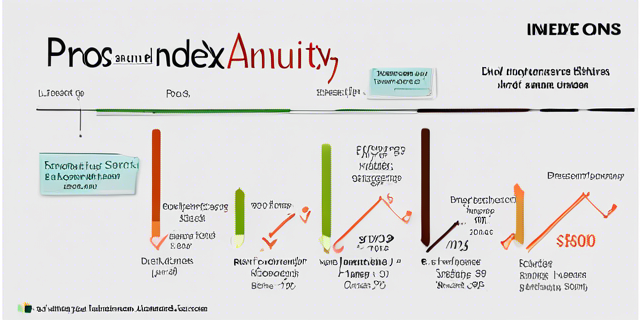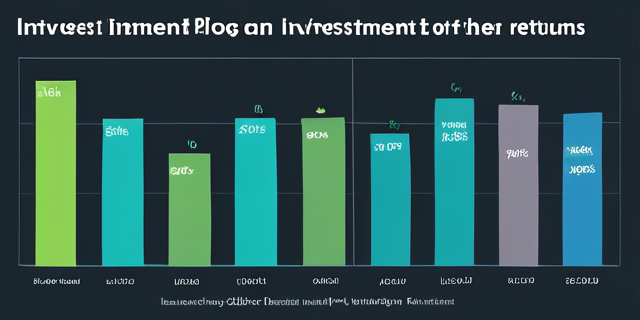The Ultimate Guide to Annuities for Seniors Over 60

As you approach your golden years, securing a steady stream of income becomes an increasingly important consideration. One financial instrument that has gained popularity among retirees is an annuity. In this comprehensive guide, we’ll explore the world of annuities, their advantages, and how they can benefit seniors over the age of 60.
What is an Annuity?
An annuity is a financial product that provides a guaranteed stream of income, either for a specific period of time or for the remainder of your life. It is essentially a contract between you and an insurance company, where you make a lump-sum payment or a series of payments, and in return, the insurance company agrees to pay you a fixed amount of money on a regular basis, such as monthly or annually.
Types of Annuities
There are several types of annuities available, each designed to cater to different financial goals and risk tolerances. The two main categories are:
1. Immediate Annuities
An immediate annuity is a type of annuity that begins paying out income immediately after you make your lump-sum payment. This option is particularly attractive for seniors who require a steady income stream right away.
2. Deferred Annuities
A deferred annuity, on the other hand, allows you to accumulate funds over time before you start receiving payments. This option is generally more suitable for individuals who are still working and want to build up their retirement savings.
Within these two broad categories, there are several variations, including:
- Fixed Annuities: These annuities offer a guaranteed rate of return, providing a predictable income stream.
- Variable Annuities: Variable annuities are tied to the performance of underlying investments, such as mutual funds, offering the potential for higher returns but also exposing you to market risks.
- Indexed Annuities: These annuities are linked to a specific market index, such as the S&P 500, and provide returns based on the index’s performance, subject to certain limits and caps.
Why Consider an Annuity as a Senior?

As you enter your retirement years, an annuity can offer several advantages that make it an attractive option for seniors over 60:
1. Guaranteed Income for Life
One of the primary benefits of an annuity is the guarantee of a steady income stream for life. This can provide peace of mind and financial security, alleviating concerns about outliving your retirement savings.
2. Protection Against Market Volatility
With a fixed annuity, your income payments are not affected by market fluctuations, offering a stable source of income during times of economic uncertainty.
3. Tax-Deferred Growth
Deferred annuities allow your money to grow tax-deferred, potentially resulting in higher returns compared to taxable investments.
4. Estate Planning Benefits
Annuities can be structured to provide income for your spouse or beneficiaries after your passing, ensuring that your loved ones are taken care of financially.
Factors to Consider When Choosing an Annuity
While annuities offer several advantages, it’s essential to carefully evaluate your personal circumstances and financial goals before making a decision. Here are some key factors to consider:
1. Age and Life Expectancy
Your age and life expectancy play a crucial role in determining the type of annuity that best suits your needs. Immediate annuities may be more suitable for seniors who require income right away, while deferred annuities could be a better choice for those with a longer time horizon.
2. Retirement Income Needs
Assess your anticipated retirement expenses, including healthcare costs, housing, and lifestyle expenses, to determine the amount of income you’ll need from an annuity.
3. Existing Retirement Savings
Consider your existing retirement savings, such as 401(k) plans, IRAs, and other investments, to ensure that an annuity complements your overall financial plan.
4. Inflation Protection
Some annuities offer inflation protection, which can help maintain your purchasing power over time. This feature may be particularly important for seniors with longer life expectancies.
5. Fees and Expenses
Annuities can come with various fees and expenses, such as surrender charges, mortality and expense risk charges, and investment management fees. It’s crucial to understand and factor in these costs when evaluating annuity options.
Shopping for the Right Annuity

When shopping for an annuity, it’s essential to work with a reputable insurance company and consider factors such as financial strength ratings, customer service, and the company’s track record. Additionally, consult with a qualified financial advisor who can help you navigate the complexities of annuities and ensure that your decision aligns with your overall retirement plan.
Conclusion
As a senior over 60, an annuity can provide a valuable source of guaranteed income during your retirement years. By understanding the different types of annuities, their benefits, and the factors to consider, you can make an informed decision that aligns with your financial goals and risk tolerance. Remember, an annuity is a long-term commitment, so it’s essential to carefully evaluate your options and seek professional guidance to ensure a secure and comfortable retirement.
FAQs: The Ultimate Guide to Annuities for Seniors Over 60
- Can I withdraw money from my annuity if I need it? While annuities are designed to provide a steady income stream, some options do allow for partial withdrawals or lump-sum payouts, often subject to surrender charges or taxes. It’s important to review the terms and conditions of your annuity contract carefully.
- What happens to my annuity if I pass away? The specifics depend on the type of annuity and the options you choose. Some annuities provide a guaranteed payout period or allow for the remaining value to be paid to your beneficiaries upon your passing.
- Can I roll over my 401(k) or IRA into an annuity? Yes, it is possible to use funds from your 401(k) or IRA to purchase an annuity. This process is known as a rollover, and it can be a tax-efficient way to convert your retirement savings into a steady income stream.
- Are annuity payments taxable? A portion of your annuity payments may be subject to income tax, depending on the type of annuity and the source of funds used to purchase it. It’s essential to consult with a tax professional to understand the tax implications of your annuity.
- Can I purchase an annuity with a lump sum or through periodic payments? Both options are available. You can either make a single lump-sum payment or contribute funds periodically over time, depending on the type of annuity and your financial situation.







